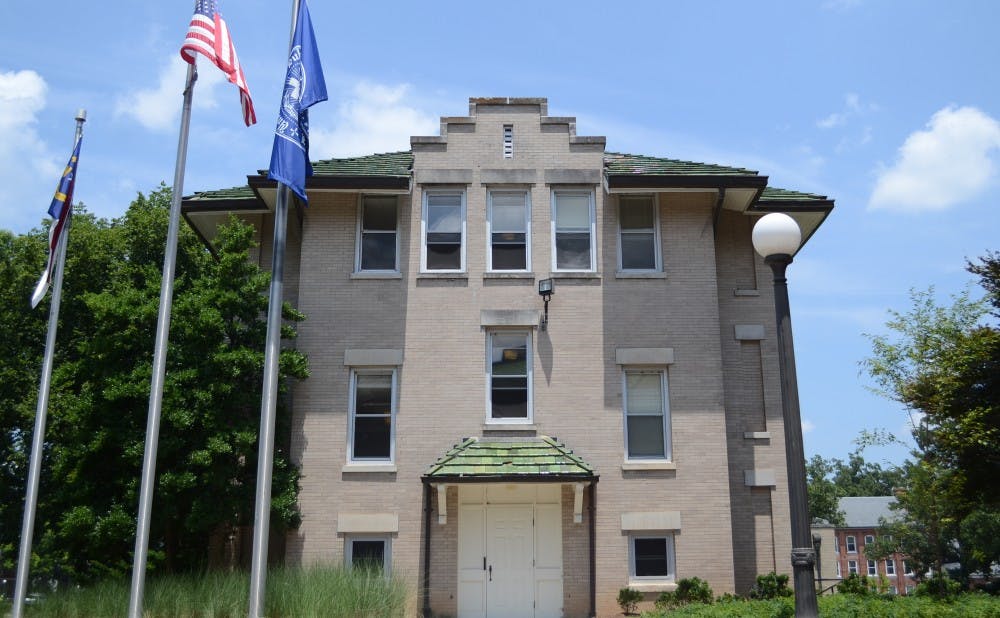Duke is no longer the only North Carolina university to have removed the name of Charles Aycock from its campus.
East Carolina University's Board of Trustees voted Friday to rename its Aycock Residence Hall. The decision comes eight months after Duke's Trustees decided to rename freshman dormitory Aycock as East Residence Hall—following years of student advocacy against using the former North Carolina governor, who had a well-documented history of white supremacy, as a campus namesake. The change at ECU followed a similar student campaign.
At ECU, as at Duke, campus officials said that removing Aycock's name from the building is not an attempt to erase his history at the university. A new campus space to be known as Heritage Hall will hold information about Aycock's history, alongside that of others who contributed to ECU.
“We believe that Aycock’s legacy to education will be better served represented in the overall history of ECU in Heritage Hall," ECU's Trustees said in a statement. "We respect the new awareness and appreciation that have been gained by open discussion of values and legacies that impact our past, present and future. While it has been a long process, we believe that we have arrived at the right decision for East Carolina University, one that supports our mission, vision and values.”
At Duke, Aycock's history is explained by a plaque in the entryway of East Residence Hall.
"We've given this careful thought. One argument is that history is history, and we can't change it by erasing," President Richard Brodhead told The Chronicle in June, when the renaming was announced. "But I don't regard this as an erasure."
Responsible for opening and supporting hundreds of public schools, Aycock was known as the "Education Governor" and held the office from 1901 to 1905. Aycock made his racial views clear in a number of speeches and policies, but his involvement in the white supremacy movement was perhaps most explicit in his participation in the Wilmington race riots of 1898. The city's government was overthrown and dozens of black residents were killed in an event spurred in part by Aycock's rhetoric.
His involvement with the white supremacy movement has garnered attention in recent years, sparking dialogue about his legacy.
Two other local colleges have buildings named after Aycock—the University of North Carolina at Chapel Hill and the University of North Carolina at Greensboro. At both universities, the name has sparked dialogue but remains unchanged.
The move to rename Aycock at ECU came after years of discussion and protest. A decision could not be reached by the university's Trustees at a December meeting, delaying the vote until Friday. The school's Black Student Union was at the forefront of the conversation, circulating student and alumni petitions advocating for the change and hosting a campus panel on Aycock's life last week.
"As an African-American, I can't believe I rested my head in a place [named for] a person that wanted my own people dead," Lawren Ridaux, an ECU alumna who lived in Aycock as a freshman, wrote on a petition. "I hate this and it needs to be changed."
Get The Chronicle straight to your inbox
Signup for our weekly newsletter. Cancel at any time.

